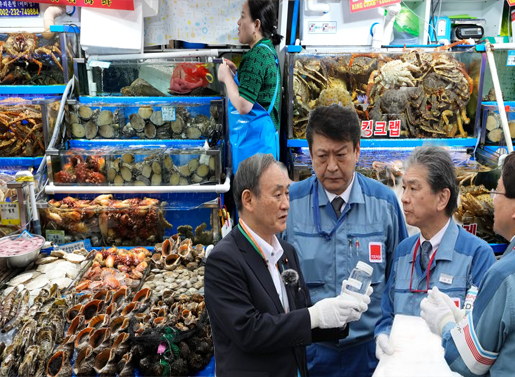China announced it would suspend all seafood imports from Japan as treated water from the crippled Fukushima Daiichi nuclear power plant began to be released into the Pacific Ocean on Thursday.
China’s customs said the suspension on aquatic products including seafood was to “protect the health of Chinese consumers.” The country’s foreign ministry condemned Japan’s move as “selfish and irresponsible.”
“What Japan has done is pass on the risks to the world and pass on the pain to future generations of mankind, becoming ecological and environmental destroyers and global marine polluters, and violating the people’s rights to health, development and environmental rights,” the Chinese Ministry of Foreign Affairs said in an online statement.
“The Japanese have also violated their moral responsibilities and international legal obligations,” it added.
The water — used to cool radioactive debris trapped inside the facility after the March 2011 earthquake and tsunami triggered three meltdowns — is stored at the site in over 1,000 almost full tanks. It will be gradually discharged over 30 years.
China has been vocally critical of Tokyo Electric Power Co.’s (TEPCO) move, warning that the contaminated water could impact people’s health. It had previously questioned the safety of the method and said Japan had not provided “sufficient scientific and convincing explanations.”
Japan’s government will monitor the level of radioactivity in nearby waters and fish, with officials saying data will be made available on websites soon.
The International Atomic Energy Agency said in July that the water release plan would have “negligible” radiation effects on humans and the environment.
China already had a ban in place on seafood imports from 10 prefectures in Japan. Seafood imports from other prefectures had to pass radioactivity tests.





